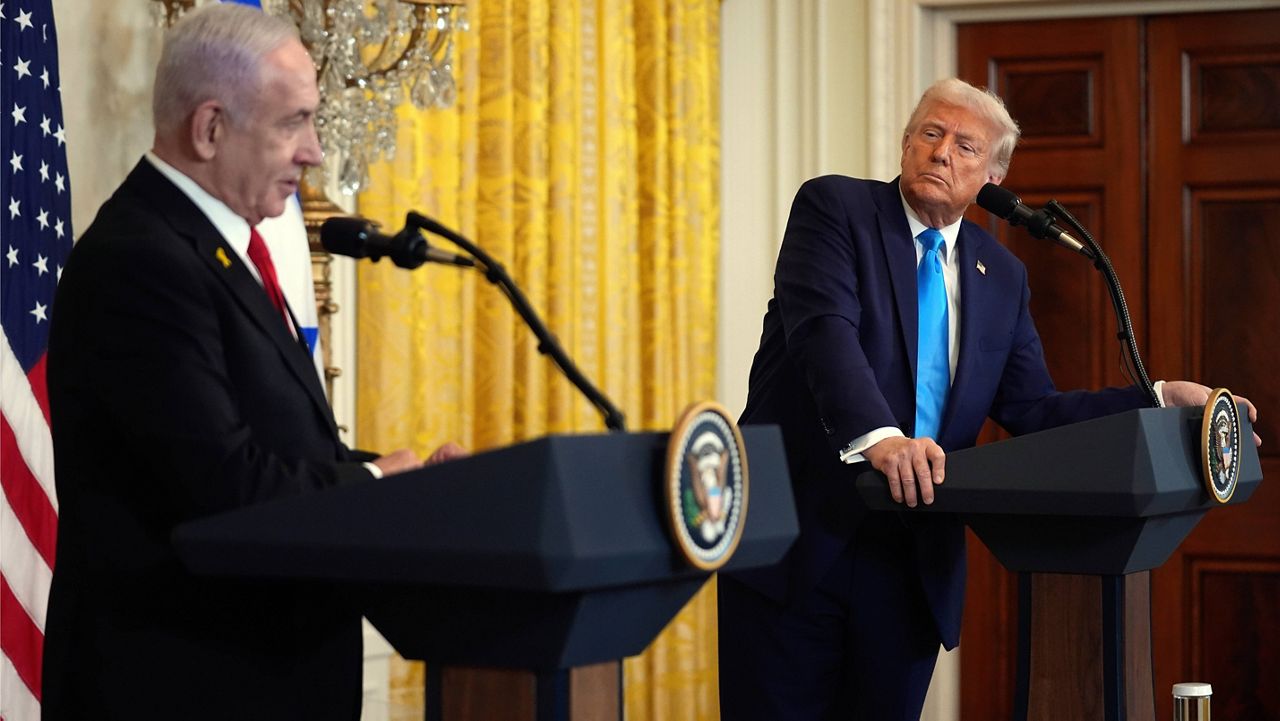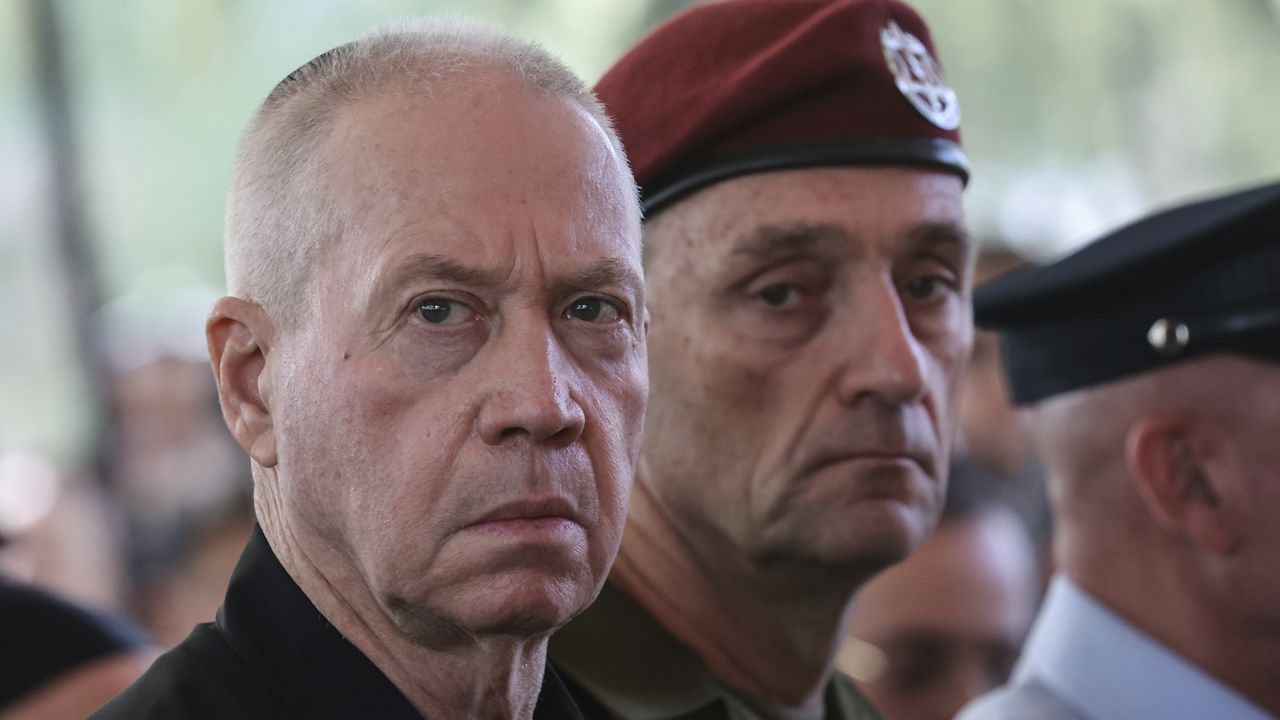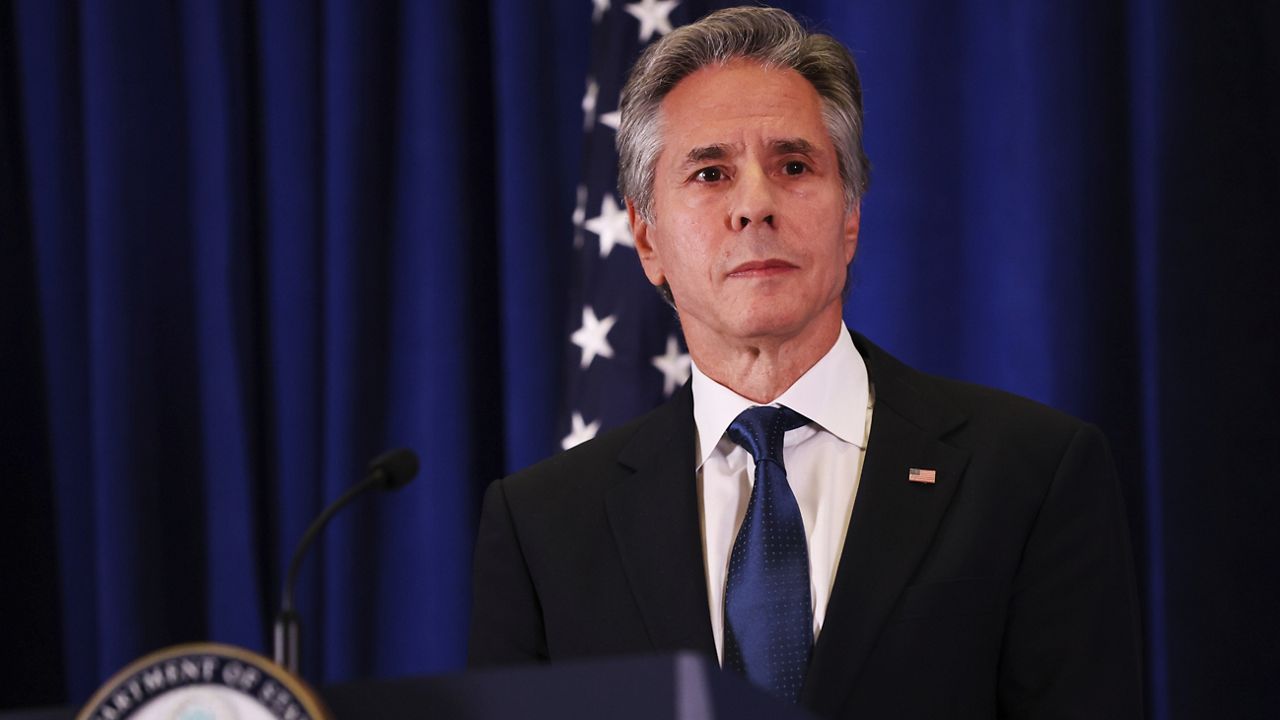In an op-ed for The New York Times in the aftermath of the killing of seven World Central Kitchen aid workers in an Israeli air strike on Monday, chef José Andrés, the group’s founder, called on Israel to “stop killing civilians and aid workers” and allow more food and medical aid into Gaza immediately.
“The seven people killed on a World Central Kitchen mission in Gaza on Monday were the best of humanity,” Andrés wrote. “They are not faceless or nameless. They are not generic aid workers or collateral damage in war.”
“Saifeddin Issam Ayad Abutaha, John Chapman, Jacob Flickinger, Zomi Frankcom, James Henderson, James Kirby and Damian Sobol risked everything for the most fundamentally human activity: to share our food with others,” he continued, calling them “heroes” after recalling serving with them in Gaza, Israel, Ukraine and several other countries.
“Their work was based on the simple belief that food is a universal human right,” Andrés added. “It is not conditional on being good or bad, rich or poor, left or right. We do not ask what religion you belong to. We just ask how many meals you need.”
The bodies of six of the workers — three British citizens, a Canadian-American dual citizen, a Polish citizen and an Australian citizen — were transported out of Gaza and into Egypt on Wednesday, Egyptian state media reported. The remains of the seventh victim, a Palestinian, were given to his family in Gaza. They were distributing food delivered to Gaza through a newly established maritime corridor late Monday when Israeli airstrikes targeted their three vehicles, killing everyone inside.
Some of Israel's closest allies, including the United States, condemned the deaths, which led the World Central Kitchen and other charities to suspend food deliveries, citing the dire security situation. President Joe Biden said that he was “outraged and heartbroken” by their deaths and called for an immediate probe into the incident: “That investigation must be swift, it must bring accountability, and its findings must be made public.”
In his op-ed Wednesday, which was also published in Ynetnews, an English-language Israeli news outlet, Andrés said that they have fed Israelis and Palestinians since the first day of the conflict, including 1.75 million hot meals across Israel and more than 43 million meals in Gaza.
“We have fed families displaced by Hezbollah rockets in the north. We have fed grieving families from the south,” he wrote. “We delivered meals to the hospitals where hostages were reunited with their families. We have called consistently, repeatedly and passionately for the release of all the hostages.”
“All the while, we have communicated extensively with Israeli military and civilian officials,” he continued. “At the same time, we have worked closely with community leaders in Gaza, as well as Arab nations in the region. There is no way to bring a ship full of food to Gaza without doing so."
Andrés said that they "know" Israelis, a people who understand that "food is not a weapon of war."
"Israel is better than the way this war is being waged," he said. "It is better than blocking food and medicine to civilians. It is better than killing aid workers who had coordinated their movements with the Israel Defense Forces."
He called on Israel's government to "open more land routes for food and medicine today. It needs to stop killing civilians and aid workers today. It needs to start the long journey to peace today."
"In the worst conditions, after the worst terrorist attack in its history, it’s time for the best of Israel to show up," he wrote. "You cannot save the hostages by bombing every building in Gaza. You cannot win this war by starving an entire population."
Andrés said that his organization welcomes a probe into the killings, but said that it "needs to start at the top, not just the bottom," laying the blame directly at the feet of Israel for the attack. He called it a "direct attack on clearly marked vehicles whose movements were known by the Israel Defense Forces."
"It was also the direct result of a policy that squeezed humanitarian aid to desperate levels," Andrés said, later adding: "The team members put their lives at risk precisely because this food aid is so rare and desperately needed." Multiple experts across the spectrum have expressed that famine is imminnent in Gaza amid the monthslong war between Israel and Hamas.
He closed his op-ed by citing the shared culture across the Mediterranean and Middle East, saying that "regardless of ethnicity and religion," they all value food as "a powerful statement of humanity and hospitality — of our shared hope for a better tomorrow."
"There’s a reason, at this special time of year, Christians make Easter eggs, Muslims eat an egg at iftar dinners and an egg sits on the Seder plate," Andrés said. "This symbol of life and hope reborn in spring extends across religions and cultures."
Paraphrasing the story of Passover told in the Torah in Exodus -- "You shall not oppress a stranger, as you yourself know the feelings of a stranger, for you also were strangers in the land of Egypt" from Exodus 23:9 -- Andrés recalled being a "stranger" at Seder dinners, the traditional holiday meal.
"I have been a stranger at Seder dinners. I have heard the ancient Passover stories about being a stranger in the land of Egypt, the commandment to remember — with a feast before you — that the children of Israel were once slaves," he concluded. "It is not a sign of weakness to feed strangers; it is a sign of strength. The people of Israel need to remember, at this darkest hour, what strength truly looks like."
The Associated Press contributed to this report.









